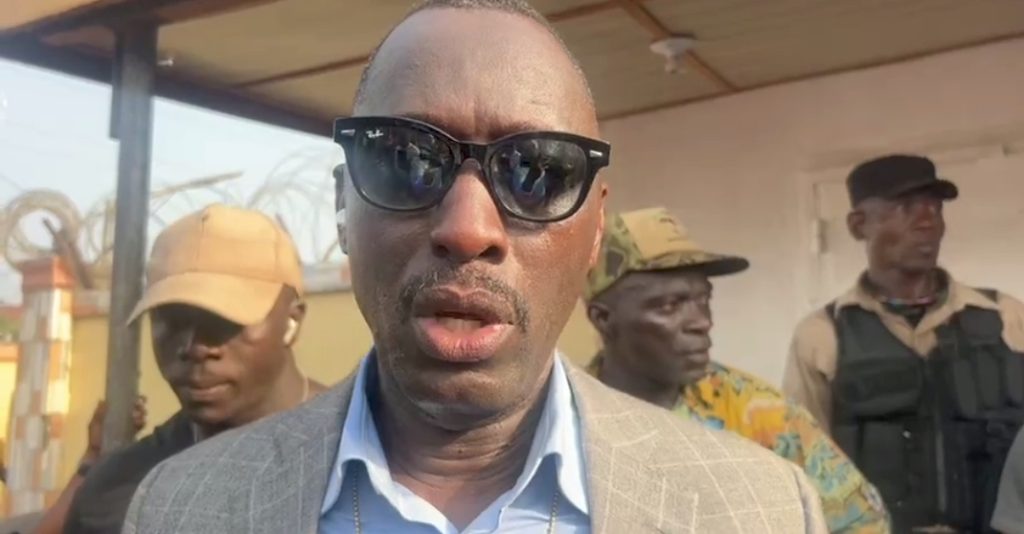On February 21, 2024, a special team from the Liberia Drugs Enforcement Agency (LDEA) conducted an operation in New Kru Town, resulting in the arrest of several individuals, including well-known drug dealer George Obi, also known as Original Japan. The operation was executed under a search and seizure warrant from a magisterial court. This incident rekindled interest in the history and activities of both the accused and the LDEA, especially in light of ongoing testimonies during the trial which began on October 8, 2024. Col. Abraham Kromah, the suspended head of the LDEA, has emerged as a key figure in the proceedings, providing insights into his prior knowledge of the accused and his role in the investigation leading to their arrests.
Col. Kromah testified that prior to his appointment as Director General of the LDEA, he knew George Obi as a vehicle repairer who worked on his cars. However, upon taking over the agency, he learned from various sources, including state officials and citizens, that Obi had connections to drug trafficking. He recounted how intelligence gathering among drug users and suspected dealers revealed Obi’s illicit activities, leading LDEA officials to surveillance efforts against him at locations along the Japan Freeway. This illustrates the depth of the investigation and emphasizes the reliance on community feedback in combatting drug activities in Liberia.
The context of the trial reveals a complex web of allegations. A subpoena had been issued, compelling Col. Kromah to testify both about his experiences with obi and his role in the investigation. The presiding Judge, A. Blamo Dixon, ordered Kromah’s presence following a defense motion, indicating the considerable legal maneuvering occurring within the court. The suspended LDEA boss faced queries regarding his relationship with Obi and whether he had any prior knowledge of Obi’s drug dealings. Col. Kromah expressed his shock upon learning of Obi’s dual life, indicating a sense of betrayal given their previous transactional relationship centered around vehicle repairs.
Significantly, George Obi has countered Col. Kromah’s testimony by accusing him of owing him money. During his testimony, Obi claimed that Col. Kromah had failed to repay him $2,700, leading to a personal vendetta that allegedly prompted the LDEA to plant drugs in his residence. Col. Kromah vehemently denied these claims, asserting his financial dealings with Obi were strictly cash-based and that Obi was known to demand immediate payments. This exchange of allegations has heightened the drama in the courtroom, raising questions about personal motives versus professional duties within the law enforcement agency.
The scope of the LDEA’s operations on February 21 was substantial, resulting in the seizure of significant quantities of drugs including Kush, heroin, marijuana, and Tramadol, with the total estimated street value amounting to USD $31,625. The investigations pointed towards a collaborative effort among multiple accused individuals. The subsequent indictment by the Grand Jury of Montserrado County accused George Obi and others of various drug-related offenses, including the unlawful maintenance and distribution of controlled substances and criminal conspiracy. The charges were severe, emphasizing the collective intention of the accused to harm Liberia’s youth through drug distribution.
The overarching legal implications of the case suggest a deep-rooted issue of drug trafficking within Liberia, exacerbated by local dealers exploiting vulnerable populations. The indictment highlighted the conscious decision of the defendants to contribute to the deterioration of society, willfully transporting and selling drugs despite their harmful effects. The case is emblematic of the challenges faced by law enforcement agencies like the LDEA in tackling drug-related issues while also grappling with internal conflicts and allegations of corrupt practices. This trial not only sheds light on the personalities involved but also addresses broader societal problems related to drug abuse and the criminal justice system’s role in attempting to curb these issues.














